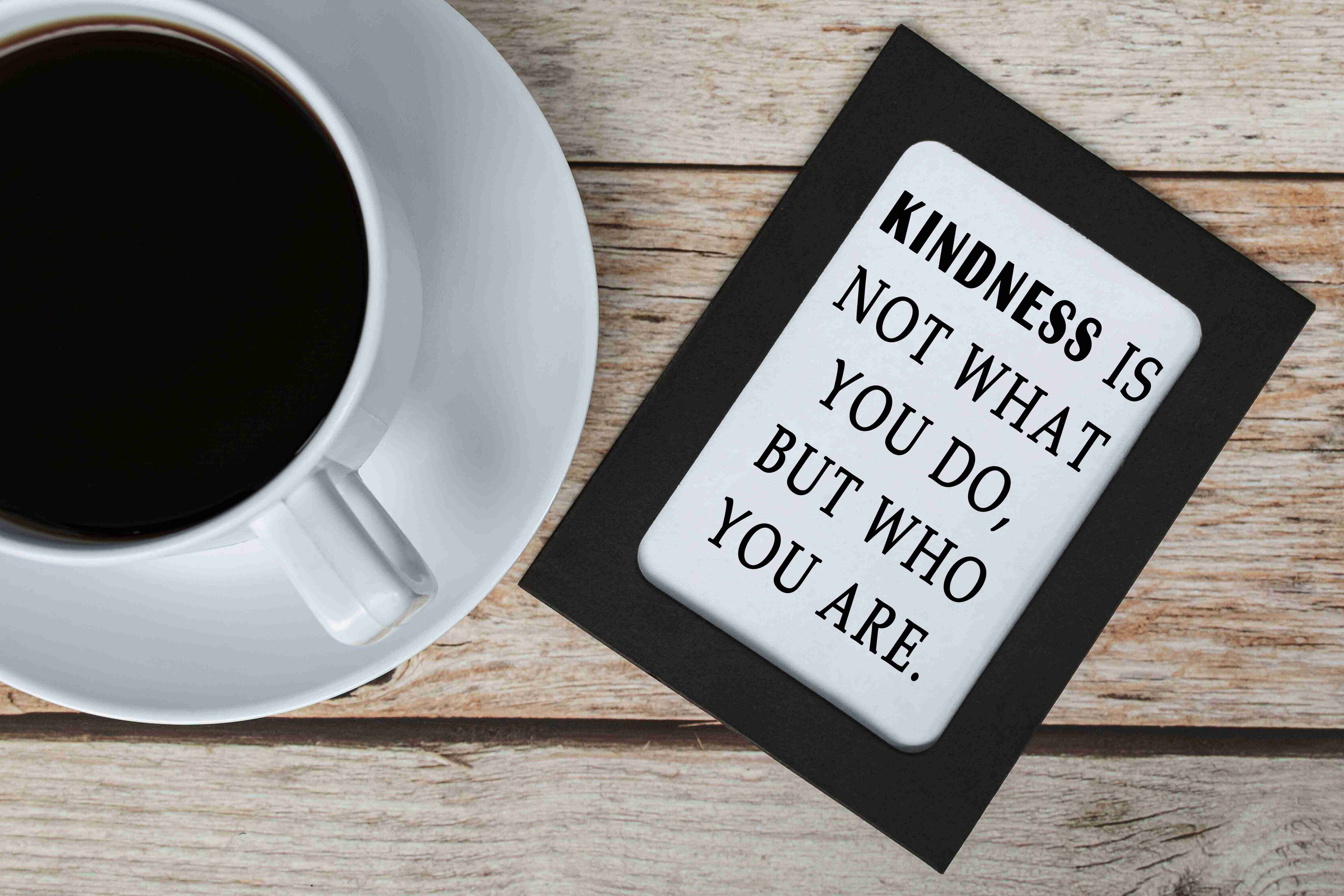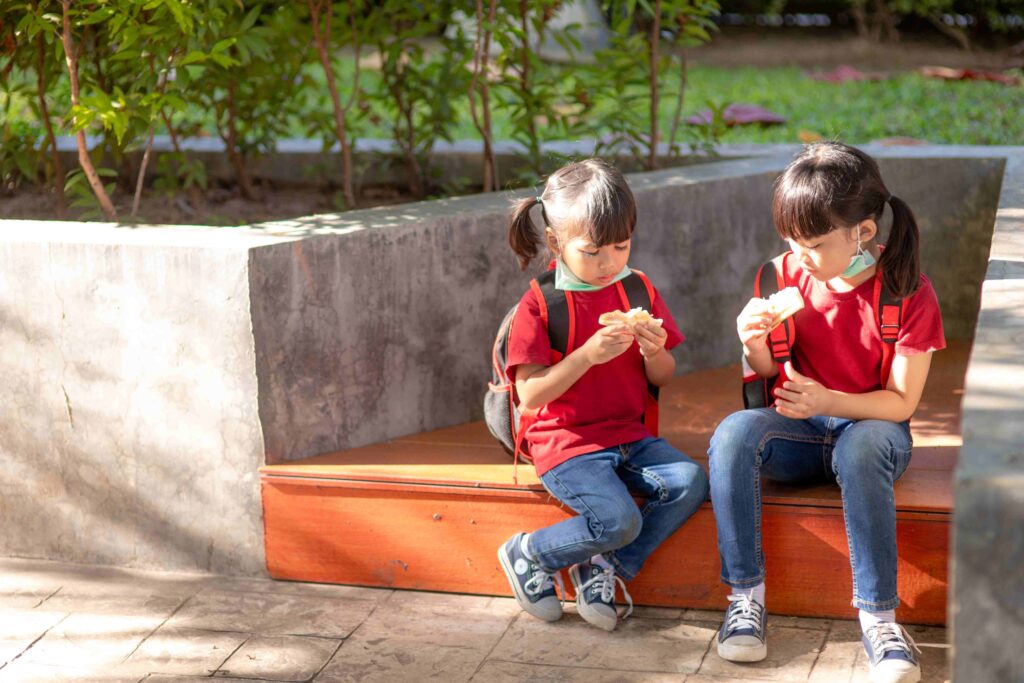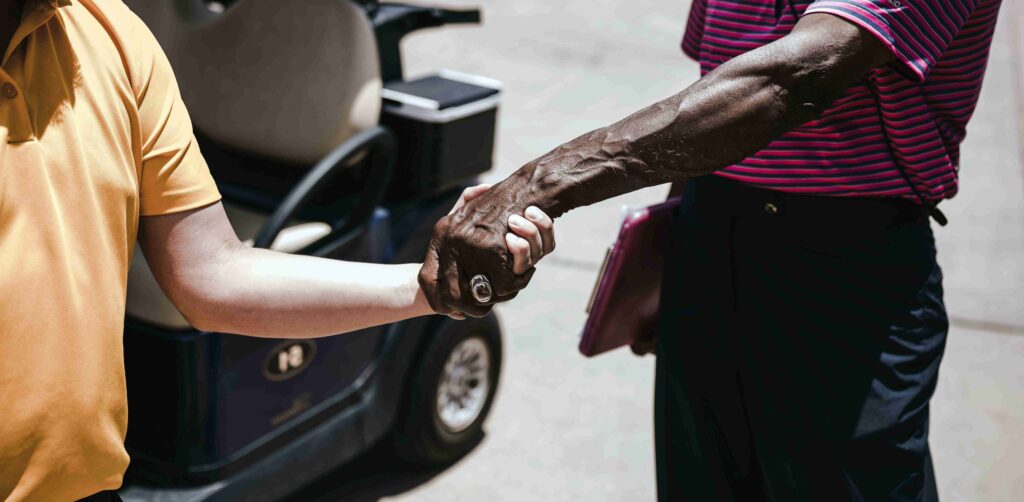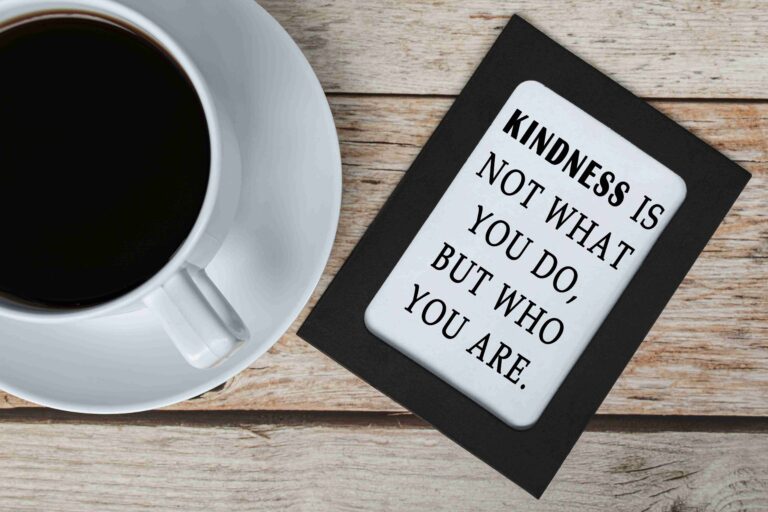Random Act of Kindess: How the Power of Small Acts Can Inspire Significant Change
- Mental Health
- |May 26, 2024

The impact of a singular act of kindness often goes unnoticed amid the hustle and bustle of daily life. But even the smallest action can have effects that last a long time after it is done, like a rock thrown into a still pond. Random acts of kindness (RAK) are akin to these ripples; they propagate, promoting connection, fostering optimism, and serving as a reminder of what makes us all human.
According to the results of the American Psychiatric Association’s most current Healthy Minds Poll, conducted by Morning Consult among 2,210 adults from October 16 to 19, 2023, 89% said doing an act of kindness for someone else made them feel significantly, moderately, or somewhat better, while 90% said receiving an act of kindness made them feel those same ways.
The Power of Kindness – When a Forgotten Lunch Becomes a Lesson in Empathy:

Sheila’s stomach grumbled a protest as she rushed through the crowded hallway. The weight of her family’s financial struggles pressed down on her already anxious day, and for the umpteenth time, she’d forgotten her lunch. Lunchtime usually meant empty stomachs, empty stares, and a dull ache of hunger.
Suddenly, a voice jolted her out of her thoughts. “Hi, Sheila,” Sarah, a classmate known for her warm smile and infectious cheer, stood beside her. “Looks like another day without lunch?” A flush of embarrassment crept up Sheila’s cheeks as she mumbled a confirmation.
Sarah, without missing a beat, pulled out a beautifully wrapped lunchbox. “Don’t worry,” she said, offering half. “Mom made extra today.”
Sheila hesitantly accepted. As they sat together discussing their favorite books, the simple act of sharing a meal filled Sheila with a warmth that had nothing to do with the delicious sandwich. It was a reminder that she wasn’t alone, that even in unexpected places, kindness still existed.
The ripple effect of kindness is powerful. Moved by Sarah’s compassion, Sheila vowed to pay it forward. The next day, spotting a new student sitting alone at lunch, Sheila remembered her own experience. With a warm smile, she invited the student to join her. A simple gesture sparked a conversation, a budding friendship, and a sense of belonging for the new student.
The Science of Kindness – The Neural Rewards of Helping and Positive Reinforcement:
Random acts of kindness (RAK) are significant in the field of social psychology, as they have been extensively researched and have been shown to have demonstrable positive effects, in addition to anecdotal evidence.
A cascade of neurochemical reactions within the brain occurs when we engage in RAK, promoting emotions of well-being, happiness, and social connection.
Dopamine and the Reward System: RAK induces the release of dopamine, a neurotransmitter that is linked to motivation and reward. This results in a pleasurable experience, which is frequently referred to as a “helper’s high,” which serves to reinforce positive social behaviors such as compassion.
Oxytocin and Social Bonding: The production of oxytocin, which is frequently referred to as the “love hormone,” is also stimulated by acts of compassion. Oxytocin has the ability to cultivate emotions such as empathy, trust, and social bonding. Research indicates that it may also lower blood pressure and tension levels, thereby enhancing overall well-being.
Serotonin and Mood Regulation: The act of assisting others can increase the levels of serotonin, a neurotransmitter that is responsible for regulating mood and self-esteem. Feelings of tranquility, joy, and accomplishment are contributed to by elevated levels of serotonin.
Beyond the Brain – The Physiological Advantages of Generosity:
The beneficial effects of RAK are not limited to neurochemistry. Research indicates that there is a distinct correlation between acts of compassion and physical health:
Cardiovascular Health: RAK has the potential to lower blood pressure and reduce the risk of cardiac disease. This is likely the result of the combined effects of diminished stress levels and oxytocin.
Immune System Function: Research has demonstrated that individuals are less susceptible to illness when they assist others, which bolsters their immune system.
Longevity: Research indicates a positive correlation between a life full with kindness and social connection and a longer lifespan.
How to Integrate Kindness into Your Daily Routine:

The elegance of RAK is derived from their simplicity. Regardless of age, background, or resources, anyone is eligible to partake. The following are a few suggestions to inspire you to perform your own deeds of kindness:
Leave a positive message: Compose an encouraging message on a sticky note and place it on a library book, bus stop bench, or any other location where it may be discovered.
Assist an individual who is in need: Offer to assist an elderly neighbor with their groceries, assist an individual who is having difficulty loading their vehicle, or simply provide directions to a confused tourist.
Spread positivity online: Negativity can thrive on social media platforms. By leaving positive comments, offering words of encouragement, or sharing uplifting stories, you can be the change you wish to see.
Donate your time and talents to a cause that is important to you by volunteering: Your time and commitment can have a substantial impact, whether it involves the cleaning up of a park, reading to children at a library, or volunteering at a local animal shelter.
RAK – A Positive Force for Contagious Change:

The contagious essence of kindness is the source of its beauty. Witnessing acts of compassion can motivate us to reciprocate for others, thereby generating a positive ripple effect that can disseminate throughout a community. This positive reinforcement cycle serves to fortify social connections and cultivate an environment that is more compassionate for all.
Therefore, the next time you are presented with the opportunity, exercise kindness. The positive effect that your actions have on others may startle you. It is important to remember that every act of compassion, regardless of its size, has the potential to initiate a chain reaction of positive change, thereby fostering a more connected and prosperous world for all.
Let’s create a world where kindness is the norm, and the ripples of compassion touch every corner of the globe.
Thrive, not just survive: FIYOCA is your companion to mental wellness
Share:

Empowering you to heal, grow, and achieve a balance!
By signing up, you agree to our Privacy Policy




